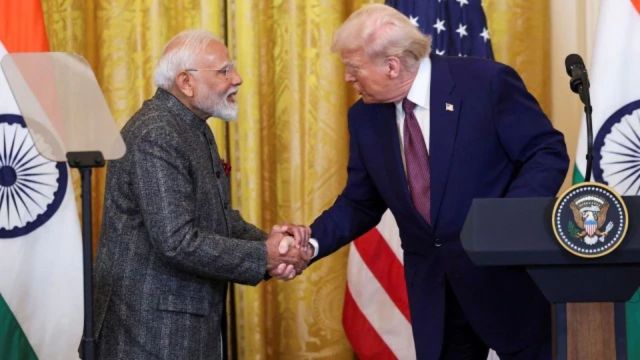
After over nearly two decades of steady progress, India-US relations may, quite abruptly, be at an inflection point. The next few months should provide important clues about how matters will unfold. Several developments in the recent past raise questions about the trajectory of the relationship.
The first disturbing sign emerged during the Pahalgam crisis. As the short, intense crisis ended, President Donald Trump asserted that he was instrumental in bringing the conflict to a close through the threat of trade sanctions on both antagonists. Subsequently, he has doubled down on his initial claim even as his Indian interlocutors continue to deny their veracity. To compound matters, his Vice President, J D Vance, also offered the good offices of the United States to mediate an end to the Kashmir dispute. Apparently, he was unaware that the last Anglo-US effort in November 1962, in the form of the Harriman-Sandys Mission, had made no meaningful headway whatsoever against a far, far weaker India.
From the standpoint of New Delhi, these assertions alone were not the only disturbing signs. Shortly after the crisis concluded, Trump invited Field Marshal Asim Munir, the chief of staff of the Pakistan Army, for lunch at the White House. This was the first time in the history of the US-Pakistan bilateral relationship that a Pakistan Army chief had been accorded this rare honour. (The self-styled Field Marshal, Mohammed Ayub Khan, when he visited the United States, was also the formal head of the Pakistani state).
All these developments, no doubt, ruffled feathers in New Delhi. They need to be placed in a broader institutional context. As of today, the Trump administration has yet to appoint an ambassador to New Delhi. During the crisis and even thereafter, the Republican-run United States senate had not confirmed an assistant secretary of state for South and Central Asian Affairs, the highest ranking official responsible for overseeing the bilateral relationship.
To make matters worse, just this week Trump, despite good-faith efforts on the part of senior Indian trade negotiators who have made multiple trips to Washington, DC, has threatened to impose a 25 per cent tariff on Indian exports to the United States. In imposing these tariffs, he publicly complained that India was purchasing significant amounts of petroleum from Russia and still purchasing ample quantities of Russian weaponry.
What Trump fails to understand is that this latest round of prospective tariffs, far from inducing India to make prompt concessions, may limit Prime Minister Narendra Modi’s room for manoeuvre in attempting to reach a trade accord with the United States. Under external duress, and with at least two domestic factors hemming him in, his ability to work toward a deal with the United States may well be quite limited. First, as is altogether well known, his government is facing a difficult election in Bihar. Second, in the current, Monsoon Session of Parliament, the Opposition has been haranguing his government to make a clean breast of the precise role that American pressure may or may not have played in bringing about the ceasefire with Pakistan in the wake of the Pahalgam crisis.
These issues, however, are not the only sources of misgiving in New Delhi. For several weeks, key members of the Trump administration have been in discussions with their counterparts in the People’s Republic of China (PRC) about reaching a trade accord and even organising a summit between Trump and Xi Jinping. Indeed, it is reasonable to infer that some progress has been made on both fronts. Such an inference is hardly unreasonable given that the current Taiwanese President, Lai Cheng-te, was told not to fly through the United States while on an upcoming visit to Latin America. He was, no doubt, told not to stop over in the United States as PRC officials have routinely objected to such visits or even stopovers on the part of high-ranking Taiwanese officials.
If the administration can make headway with the PRC on a trade agreement and, worse still, possibly back away from other historic strategic commitments, such as an unequivocal support for Taiwan, it could very easily leave New Delhi to its own devices when dealing with the threat from the PRC. Consequently, these overtures toward Beijing on the part of Washington, DC, can be of legitimate concern in New Delhi as it has long had fears about possible American abandonment.
Trump’s abrupt announcement on X (formerly Twitter) on July 30 that his administration had reached an accord to explore and develop Pakistan’s oil reserves will only fuel further concern and distrust in New Delhi. At a time when the US-India bilateral relationship was already in the doldrums, this announcement will reinforce further doubts about what significance the administration attaches to the Indo-US strategic partnership. Modi, who had staked much on his personal rapport with Trump, may conclude that the seeming bonhomie that he had developed with him during the first term may not translate into welcome policy choices in the second. Trump, in turn, in his quest for short-term gains, may well squander much of the goodwill and trust that had been so painstakingly built up across administrations, both Democratic and Republican, over the past two decades. Such an outcome will be to the detriment of both parties.
The writer is a senior fellow and directs the Huntington Programme on strengthening US-India relations at the Hoover Institution, Stanford University